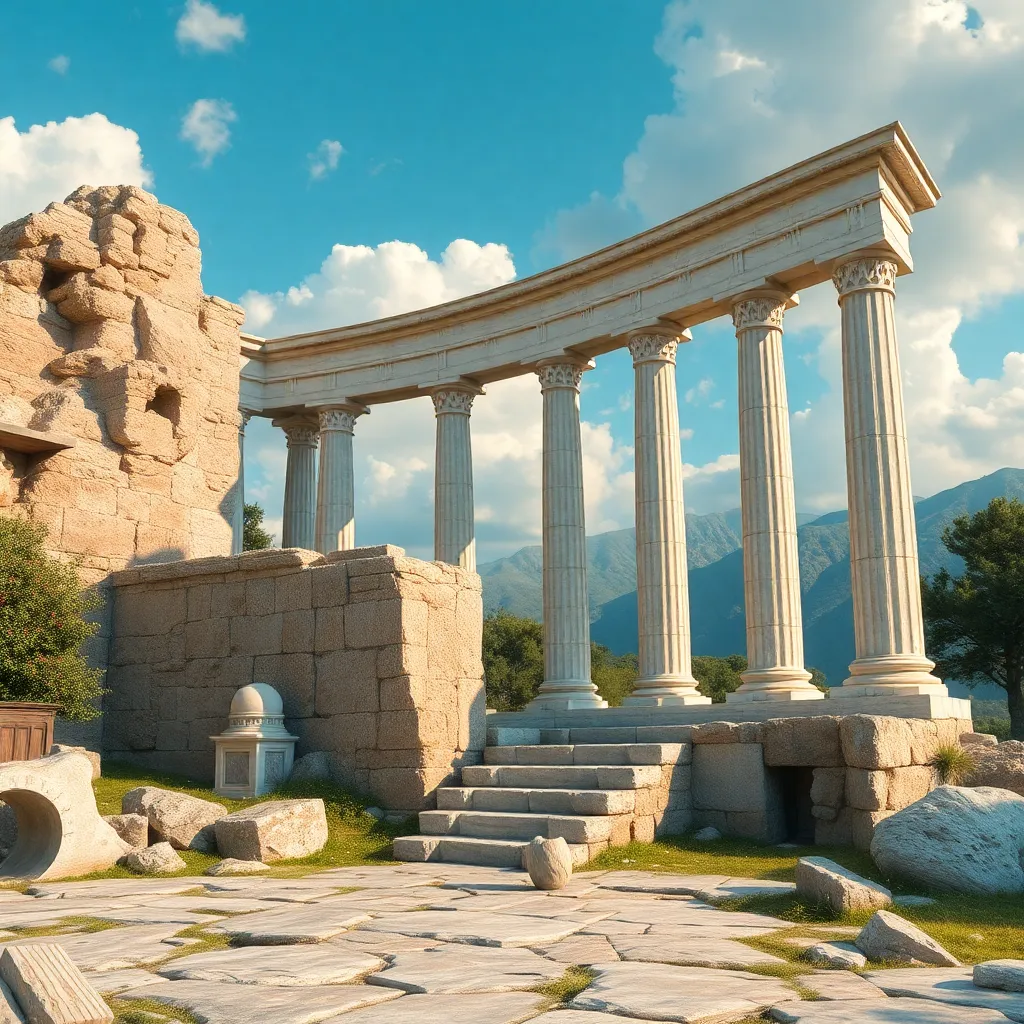The Significance of Perseus’ Birthplace: Argos in Greek Mythology
I. Introduction
In the vast tapestry of Greek mythology, few figures stand out like Perseus, the hero famed for his daring exploits and divine heritage. Born to the beautiful princess Danaë and the mighty god Zeus, Perseus embodies the intersection of mortal and divine, a theme that resonates deeply within the myths of ancient Greece. At the heart of his tale lies Argos, his birthplace, a city steeped in mythology and significance. This article aims to explore the importance of Argos in the context of Perseus’ myth and how this city serves as a backdrop for his legendary adventures.
II. Historical Context of Argos
Argos, one of the oldest continuously inhabited cities in the world, holds a prominent place in ancient Greek history. During the Mycenaean era, it was a center of culture and power, known for its contributions to the arts, architecture, and political thought.
- Argos was a significant player in the political landscape of ancient Greece, often engaging in alliances and conflicts with other city-states such as Sparta and Corinth.
- The city was noted for its impressive architectural achievements, including the Heraion, a large sanctuary dedicated to the goddess Hera.
- Argos also played a crucial role in local mythology, serving as the setting for many legendary tales, including that of Perseus.
The historical significance of Argos extends beyond its political and cultural influence; it was a city that shaped the myths and legends of Greek heritage.
III. The Mythological Background of Perseus
Perseus’ lineage is steeped in drama and prophecy. His mother, Danaë, was imprisoned by her father, King Acrisius of Argos, who feared a prophecy that claimed his grandson would one day kill him. To prevent this, Acrisius locked Danaë in a bronze chamber.
However, Zeus, drawn by Danaë’s beauty, transformed into a golden shower and entered the chamber, resulting in the birth of Perseus. This act not only highlights the divine intervention in human affairs but also sets the stage for the prophecies that intertwine with Perseus’ fate.
The implications of the prophecy were profound for Argos, as it foretold the eventual downfall of Acrisius, a theme that reverberates throughout the narrative of Perseus.
IV. Argos as a Symbol of Destiny
In mythological narratives, the significance of location cannot be overstated. Argos, as the birthplace of Perseus, symbolizes the foundation of his identity and destiny.
- Argos shapes Perseus’ fate, as it is the site of his early life and the origin of his heroic journey.
- The city serves as a reminder of his royal lineage and the expectations that come with it, instilling in him a sense of purpose.
The concept of home is pivotal in mythology, often serving as a source of strength and identity. For Perseus, Argos is not just a birthplace but a symbol of his legacy and the challenges he must overcome.
V. Key Myths Associated with Argos and Perseus
Several key myths are closely associated with both Argos and Perseus, each contributing to the rich narrative tapestry of Greek mythology.
A. The Story of the Gorgon Medusa
One of the most famous tales involving Perseus is his quest to slay the Gorgon Medusa, a creature so fearsome that her gaze could turn anyone to stone. The myth connects deeply with Argos as it represents a significant turning point in his journey.
B. Perseus’ Adventures and Their Ties to Argos
After slaying Medusa, Perseus embarks on a series of adventures that ultimately lead him back to Argos. Each encounter shapes his character and reinforces the themes of heroism and destiny.
C. The Impact of These Myths on Argos’ Cultural Legacy
The tales of Perseus have left an indelible mark on the cultural legacy of Argos, influencing art, literature, and local traditions that celebrate the hero’s achievements.
VI. Argos in Later Greek Literature and Art
The legacy of Perseus and Argos extended well into later Greek literature and art, as artists and writers sought to capture the essence of this iconic hero.
- Depictions of Perseus and his adventures are found in many ancient texts, showcasing his bravery and divine favor.
- Artistic representations, from vase paintings to sculptures, often highlight key moments from his mythology, such as his battle with Medusa.
- Argos is frequently referenced as a place of origin, reinforcing the hero’s ties to his birthplace.
VII. The Modern Significance of Argos and Perseus
In contemporary culture, Argos continues to be a site of interest for tourists and scholars alike. The myths of Perseus have transcended time, finding relevance in modern literature and media.
- Argos is celebrated in travel itineraries, attracting visitors eager to explore its rich historical and mythological connections.
- Perseus serves as a symbol of courage and resilience, often referenced in modern storytelling as an archetype of the hero’s journey.
- The enduring legacy of these myths plays a crucial role in shaping Greek identity and cultural pride.
VIII. Conclusion
The significance of Argos in the myth of Perseus cannot be overstated. As his birthplace, it lays the groundwork for his legendary status and encapsulates the themes of destiny, identity, and heroism. The lasting influence of these myths on Greek culture is a testament to the power of storytelling and the importance of place in shaping identity. The relationship between birthplace and identity in mythology serves as a reminder of the profound connections between individuals and their origins, echoing through the ages as a source of inspiration and reflection.




